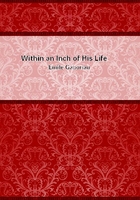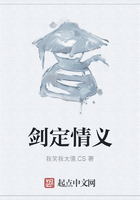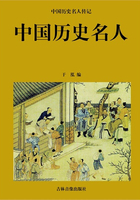Things, however, were not yet at the worst. An English officer of more spirit than judgment, eager to distinguish himself, made a premature attack on the insurgents beyond the river. His troops were entangled in narrow streets, and assailed by a furious population. He fell, with many of his men; and the survivors were forced to retire.
This event produced the effect which has never failed to follow every check, however slight, sustained in India by the English arms. For hundreds of miles round, the whole country was in commotion. The entire population of the district of Benares took arms. The fields were abandoned by the husbandmen, who thronged to defend their prince. The infection spread to Oude. The oppressed people of that province rose up against the Nabob Vizier, refused to pay their imposts, and put the revenue officers to flight. Even Bahar was ripe for revolt. The hopes of Cheyte Sing began to rise. Instead of imploring mercy in the humble style of a vassal, he began to talk the language of a conqueror, and threatened, it was said, to sweep the white usurpers out of the land. But the English troops were now assembling fast. The officers, and even the private men, regarded the Governor-General with enthusiastic attachment, and flew to his aid with an alacrity which, as he boasted, had never been shown on any other occasion. Major Popham, a brave and skilful soldier, who had highly distinguished himself in the Mahratta war, and in whom the Governor-General reposed the greatest confidence, took the command. The tumultuary army of the Rajah was put to rout. His fastnesses were stormed. In a few hours, above thirty thousand men left his standard, and returned to their ordinary avocations. The unhappy prince fled from his country for ever. His fair domain was added to the British dominions. One of his relations indeed was appointed rajah; but the Rajah of Benares was henceforth to be, like the Nabob of Bengal, a mere pensioner.
By this revolution, an addition of two hundred thousand pounds a year was made to the revenues of the Company. But the immediate relief was not as great as had been expected. The treasure laid up by Cheyte Sing had been popularly estimated at a million sterling. It turned out to be about a fourth part of that sum; and, such as it was, it was seized by the army, and divided as prize-money.
Disappointed in his expectations from Benares, Hastings was more violent than he would otherwise have been, in his dealings with Oude. Sujah Dowlah had long been dead. His son and successor, Asaph-ul-Dowlah, was one of the weakest and most vicious even of Eastern princes. His life was divided between torpid repose and the most odious forms of sensuality. In his court there was boundless waste, throughout his dominions wretchedness and disorder. He had been, under the skilful management of the English Government, gradually sinking from the rank of an independent prince to that of a vassal of the Company. It was only by the help of a British brigade that he could he secure from the aggressions of neighbours who despised his weakness, and from the vengeance of subjects who detested his tyranny. A brigade was furnished, and he engaged to defray the charge of paying and maintaining it. From that time his independence was at an end. Hastings was not a man to lose the advantage which he had thus gained. The Nabob soon began to complain of the burden which he had undertaken to bear. His revenues, he said, were falling off; his servants were unpaid; he could no longer support the expense of the arrangement which he had sanctioned. Hastings would not listen to these representations. The Vizier, he said, had invited the Government of Bengal to send him troops, and had promised to pay for them. The troops had been sent. How long the troops were to remain in Oude was a matter not settled by the treaty. It remained, therefore, to be settled between the contracting parties. But the contracting parties differed. Who then must decide? The stronger.
Hastings also argued that, if the English force was withdrawn, Oude would certainly become a prey to anarchy, and would probably be overrun by a Mahratta army. That the finances of Oude were embarrassed he admitted, But he contended, not without reason, that the embarrassment was to be attributed to the incapacity and vices of Asaph-ul-Dowlah himself, and that if less were spent on the troops, the only effect would be that more would be squandered on worthless favourites.
Hastings, had intended, after settling the affairs of Benares, to visit Lucknow, and there to confer with Asaph-ul-Dowlah. But the obsequious courtesy of the Nabob Vizier prevented this visit.
With a small train he hastened to meet the Governor-General. An interview took place in the fortress which, from the crest of the precipitous rock of Chunar, looks down on the waters of the Ganges.
At first sight it might appear impossible that the negotiation should come to an amicable close. Hastings wanted an extraordinary supply of money. Asaph-ul-Dowlah wanted to obtain a remission of what he already owed. Such a difference seemed to admit of no compromise. There was, however, one course satisfactory to both sides, one course by which it wan possible to relieve the finances both of Oude and of Bengal; and that course was adopted. It was simply this, that the Governor-General and the Nabob Vizier should join to rob a third party; and the third party whom they determined to rob was the parent of one of the robbers.
The mother of the late Nabob and his wife, who was the mother of the present Nabob, were known as the Begums or Princesses of Oude. They had possessed great influence over Sujah Dowlah, and had, at his death, been left in possession of a splendid dotation. The domains of which they received the rents and administered the government were of wide extent. The treasure hoarded by the late Nabob, a treasure which was popularly estimated at near three millions sterling, was in their hands.















